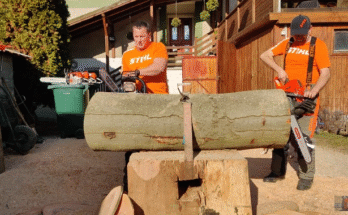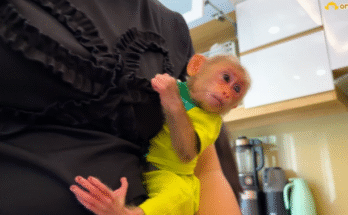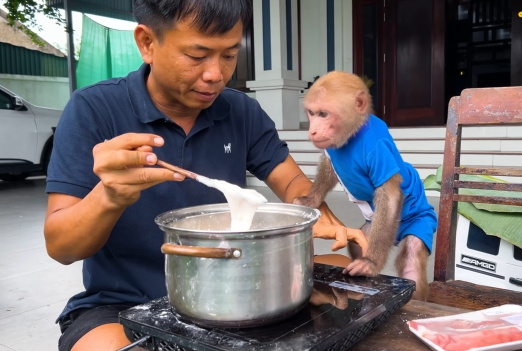
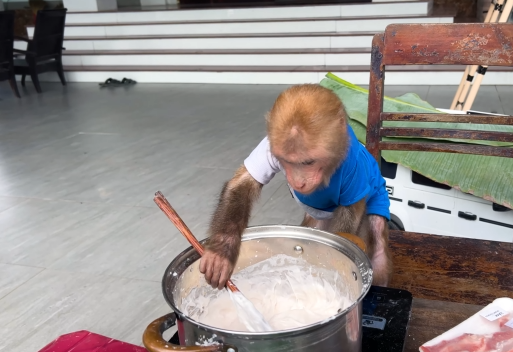
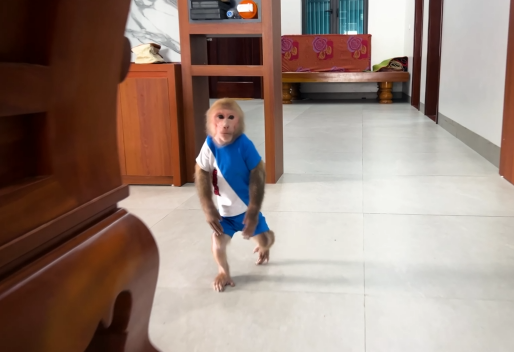
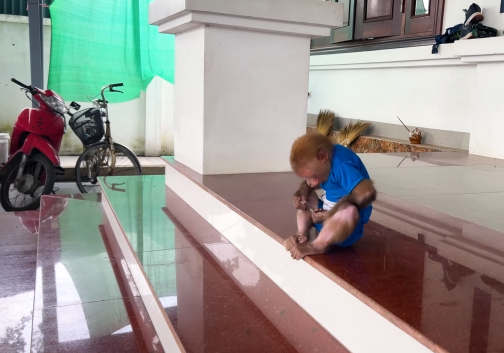
It was a sunny morning in the quiet village of Cam Hien, and the air smelled of fresh herbs and warm rice. Bibi, a curious and energetic eight-year-old girl, was bouncing with excitement. Today was special. Her mother had told her that Uncle Phong—her great-uncle who lived near the bamboo forest—was going to teach her how to make traditional cakes. Not just any cakes, but the ones her ancestors used to make during festivals and family celebrations.
Bibi had never made cakes from scratch before. She only knew about cupcakes from her school canteen and the occasional birthday cake from the bakery in town. But Uncle Phong’s cakes were different. Her mother described them as “full of memory, full of care.”
When Bibi arrived at Uncle Phong’s house, he greeted her with a warm smile and a wide straw hat.
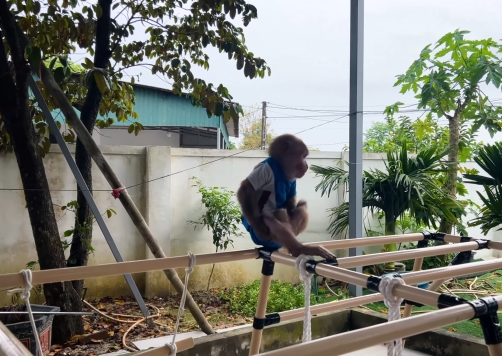



“Ready to make magic, Bibi?” he asked, handing her a small apron embroidered with tiny flowers.
“Yes!” Bibi beamed, slipping the apron over her head. “What are we going to make first?”
“We’re going to start with Bánh ít trần,” Uncle Phong said, pointing to a basket of ingredients laid out on a low wooden table. “These are sticky rice dumplings with a savory filling. My grandmother taught me when I was just your age.”
The kitchen was outdoors, shaded by a thatched roof. Birds chirped in the background as Uncle Phong guided Bibi through the ingredients: glutinous rice flour, mung beans, minced pork, shallots, and a pinch of pepper.
Bibi’s eyes widened. “Do we need a mixer?”
Uncle Phong chuckled. “No machines here. Just hands, heart, and tradition.”
First, they prepared the mung bean filling. After soaking and steaming, the beans were mashed until smooth. Uncle Phong added sautéed pork, shallots, and spices, mixing everything gently. Bibi tasted a bit and her eyes lit up. “Yummy!”
Then came the tricky part: making the dough. Uncle Phong poured glutinous rice flour into a wide ceramic bowl and added warm water slowly, letting Bibi stir with her hands.
“It’s like clay!” she giggled, kneading the soft dough until it was smooth.
Uncle Phong taught her how to pinch off a small ball of dough, flatten it, place a spoonful of filling inside, and seal it carefully. “No cracks,” he reminded. “Cracks mean the filling escapes.”



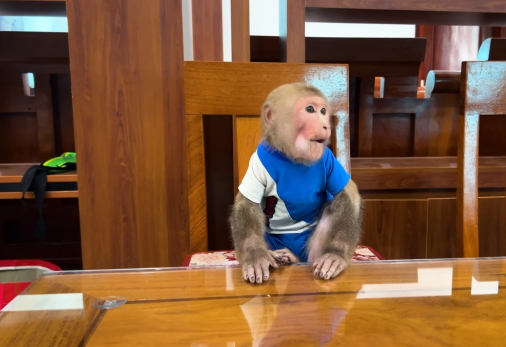
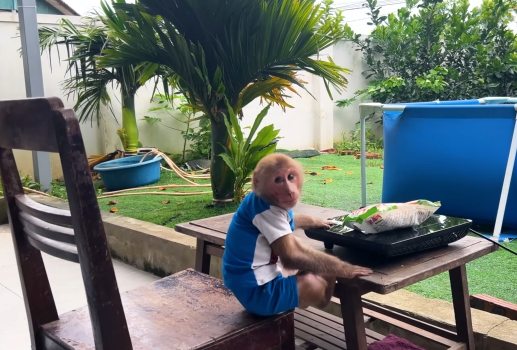
Bibi was clumsy at first. Her first dumpling looked more like a wrinkled potato, but Uncle Phong praised her anyway. “It has character! We’ll call it the ‘Bibi special.’”
They placed the dumplings on banana leaves and steamed them in a large bamboo steamer. As the cakes cooked, a delicious aroma filled the air.
“Let’s make another,” said Uncle Phong, wiping his hands. “Bánh tro—ash cake!”
“Ash cake?” Bibi blinked. “Is that… made from ash?”
“Sort of,” he smiled. “We soak glutinous rice in lye water made from burning rice husks. It gives the cake a golden, jelly-like texture. We wrap it in banana leaves and boil it.”
Bibi helped measure the rice and stir it into the amber lye water. As they wrapped the soaked rice in triangular banana leaf pockets, Uncle Phong explained how important these cakes were during the Doan Ngo Festival, a time for cleansing the body and honoring ancestors.
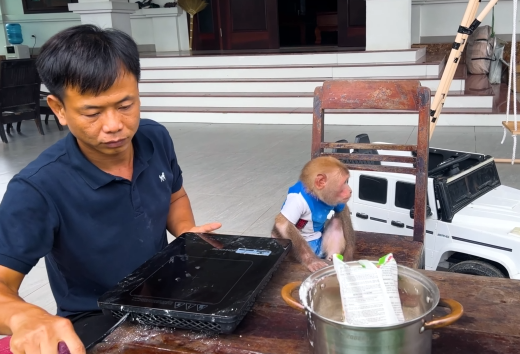
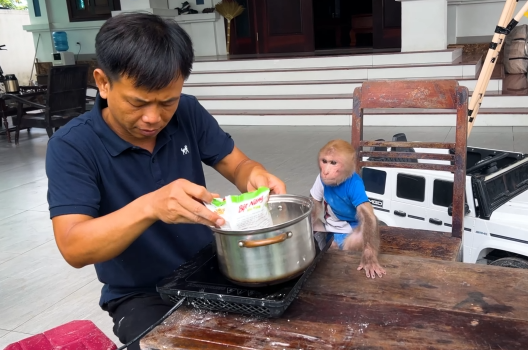
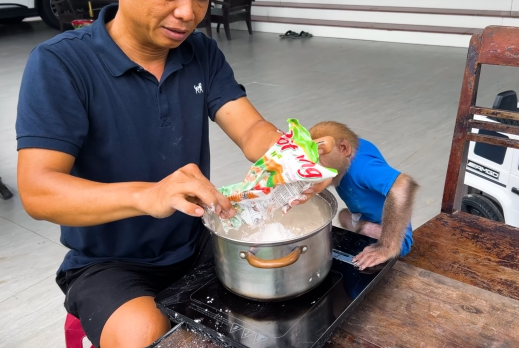
“I like that cakes can mean something,” Bibi said thoughtfully.
“They always do,” Uncle Phong nodded. “That’s why we make them slowly, with care.”
As the bánh tro boiled in a large pot, Uncle Phong told Bibi stories of when he was a little boy. He had once dropped an entire tray of steamed cakes into the river, and his grandmother made him gather banana leaves for a week to make up for it. Bibi laughed and promised not to drop any.
The final cake they made was Bánh phu thê, or “husband and wife cake.” It was delicate and beautiful—made from cassava, filled with mung bean paste, and wrapped in square boxes of coconut leaves.
“These are made for weddings,” Uncle Phong whispered, “to symbolize love, loyalty, and sweetness.”
“Can I give one to my friend Lala?” Bibi asked.
“Of course. A cake made with love is meant to be shared.”
As the afternoon sun began to dip, the cakes were finally ready. Bibi helped set them on woven trays. The steamed bánh ít trần were glossy and fragrant. The bánh tro sparkled in the sunlight, and the bánh phu thê looked like tiny presents waiting to be unwrapped.
They sat under a tamarind tree, sampling the results of their labor. Bibi took a bite of her slightly lumpy dumpling—the “Bibi special”—and declared it the best cake she had ever eaten.
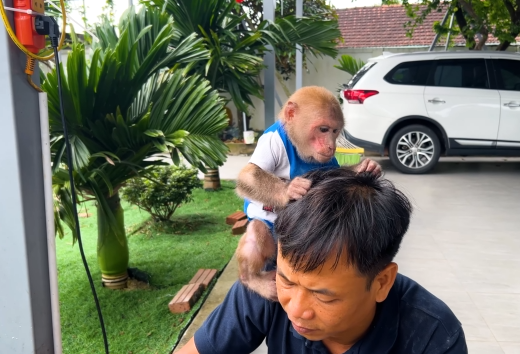
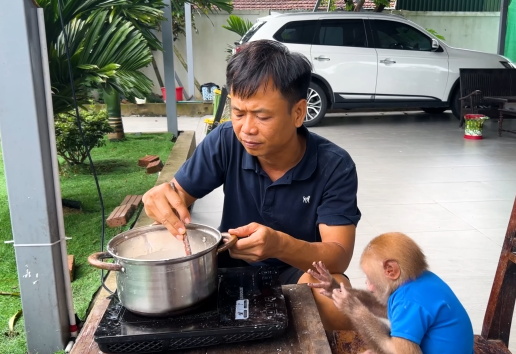
Uncle Phong laughed, his eyes crinkling with joy. “It’s not just the taste,” he said. “It’s the memory we made while making it.”
Bibi looked at her flour-covered hands and the tray of beautiful cakes. She had learned more than how to follow a recipe. She had learned patience, care, and the importance of preserving family traditions. She felt proud, connected, and full—not just from the food, but from the stories and love that came with it.
As the sky turned pink, Bibi hugged Uncle Phong tightly. “Can we do this again next weekend?”
“Any time, little chef,” he smiled.
And from that day on, Bibi became known in the village not just as the girl with the biggest smile, but also the youngest cake maker with the biggest heart.
